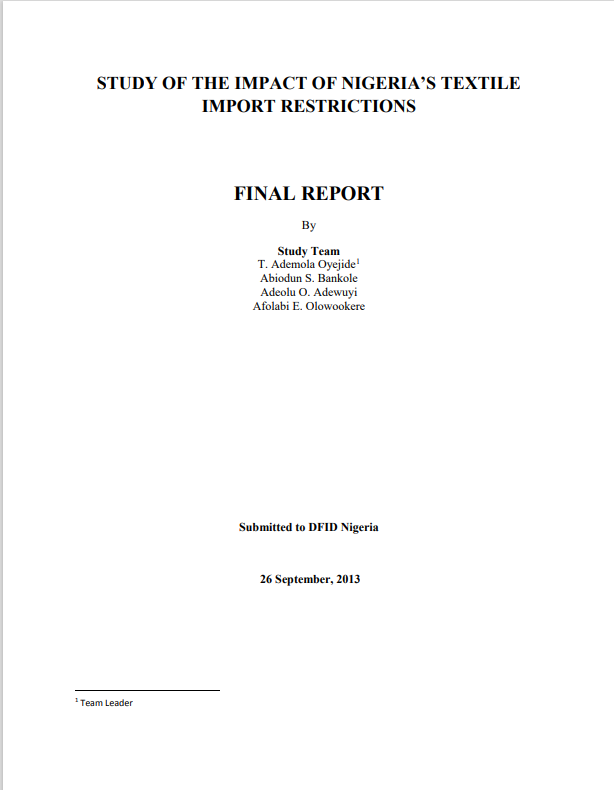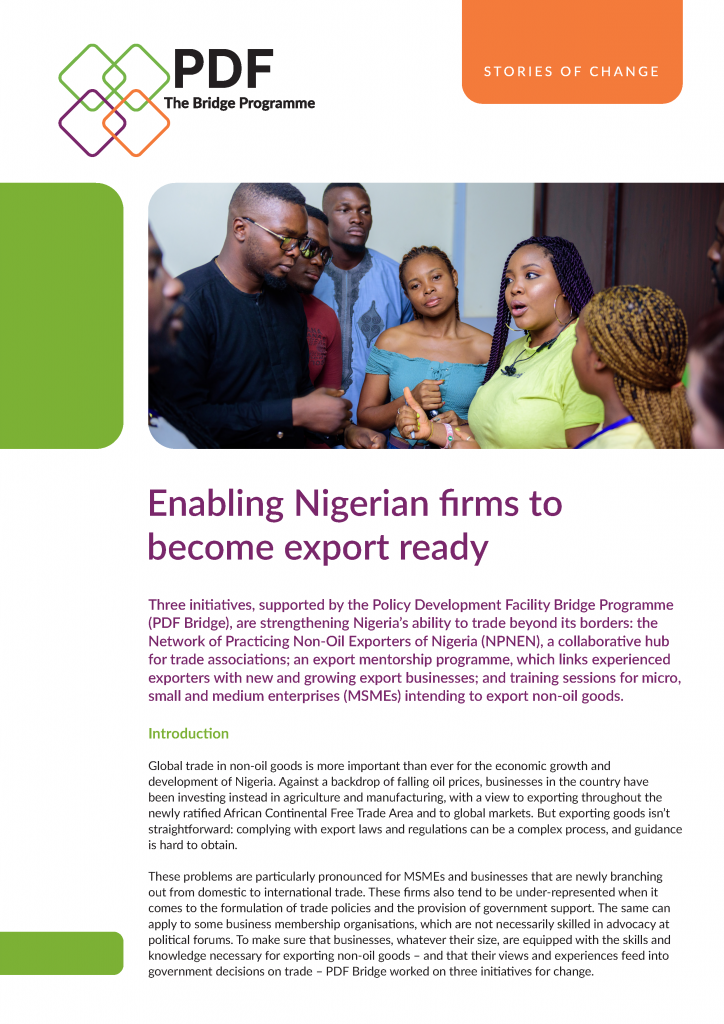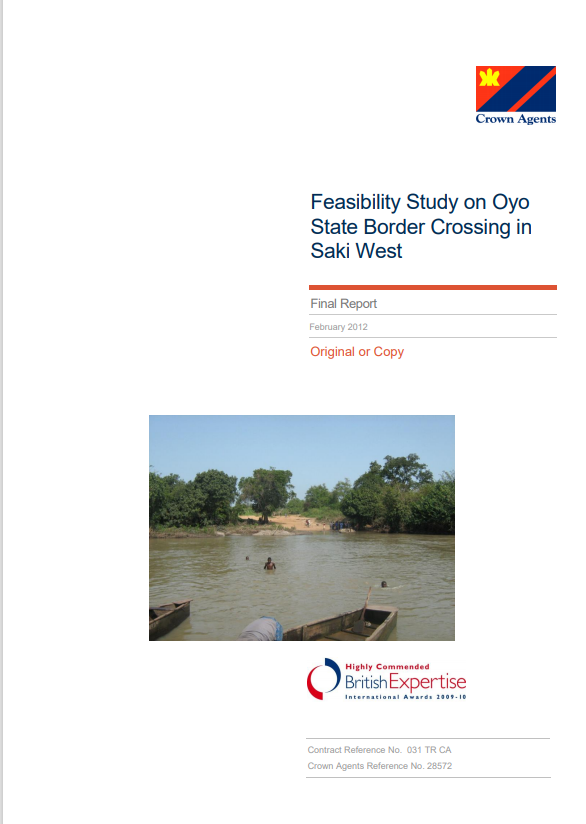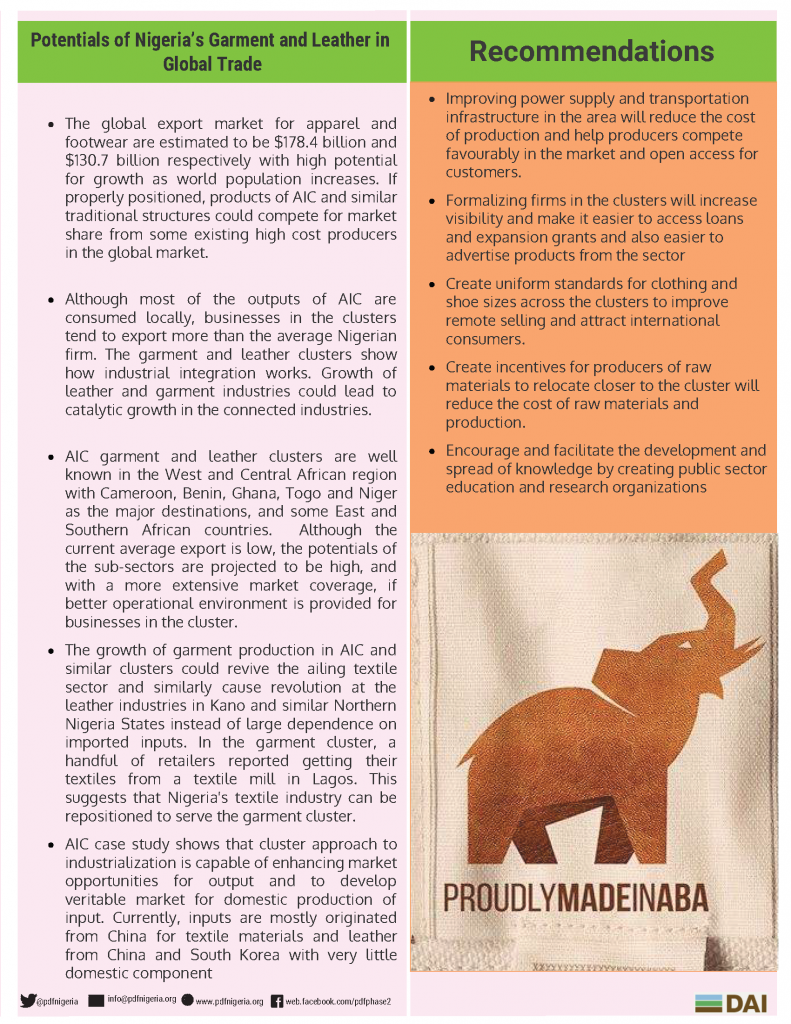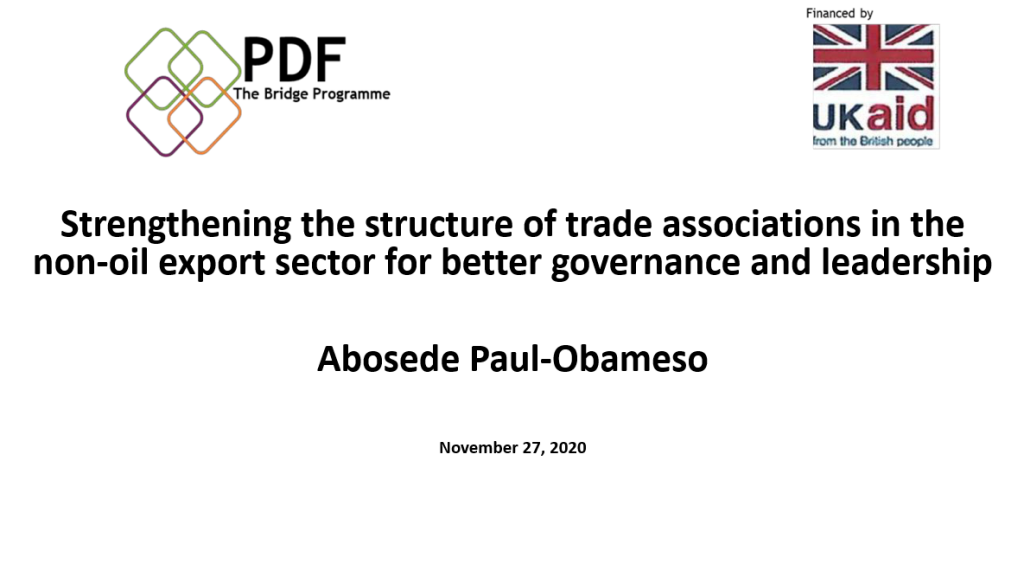This study focuses on the determination of the impact of Nigeria’s textiles import restriction. Specifically, the study describes the structure of the global and Nigeria’s textile industries as well as the global value chain, and the policy environment surrounding the industry in a global and national perspective. It was conducted in 2013 with support from FCDO (formerly DFID).
STUDY OF THE IMPACT OF NIGERIA’S TEXTILE IMPORT RESTRICTIONS
Associated resources
The Policy Development Facility Bridge program (PDF Bridge) held a Trade Policy Roundtable to discuss the findings and recommendations from its recent study titled “Diversification and Non-oil Export Opportunities for Nigerian States Post-Covid19”.
The objectives of the policy roundtable were;
- To provide a forum for relevant stakeholders to learn about and discuss the findings from the Export Diversification study;
- Through discussions, generate recommendations on necessary actionable steps towards reforms, process restructuring, elimination of various challenges identified in the study, and implementation of the study recommendations.
Against a backdrop of falling oil prices, the Nigerian government has woken up to its economic vulnerability to oil-related disruptions. This underscores the need for diversification to non-oil exports. PDF Bridge supported the drive towards growing non-oil export by supporting under-represented non-oil exporters through three strands of work: strengthening Nigeria’s ability to trade beyond its borders through the Network of Practicing Non-Oil Exporters of Nigeria (NPNEN), an export mentorship programme, which links experienced exporters with new and growing export businesses; and training sessions for micro, small and medium-sized enterprises (MSMEs) intending to export non-oil goods were held on; Market Entry Strategies, Understanding export documentation, Raising Finance for Export, Branding, and packaging for export. In addition, Roundtables were held on;
- Addressing Barriers to Access to Foreign Markets – An analysis of Spices & Herbs, Textiles & Garments, and Leather Products;
- Analysis and Impact of Export Expansion Grant on Export Potential, Market Access and Export Competitiveness in Nigeria;
- Improving Market Access through Digital Trade and;
- Analysis of Potentials of Nigeria’s Services Sector for Economic Diversification, Employment and Foreign Trade;
- Diversification and Non-oil Export Opportunities for Nigeria States Post-COVID19 Study
This is the report from a feasibility study conducted on the possibility of constructing a border post and associated infrastructure at Saki West, Oyo State. Conducted in 2012 and funded by FCDO Nigeria Policy Development Facility (FCDO-PDF).
Aba Industrial City is an aggregation of thousands of MSMEs and mass producers of industrial goods including garment and leather products. If properly harnessed, the mass production capacities of component clusters of AIC and similar models are capable of positioning Nigeria at a competitive advantage in the global garment and leather industrial space. In 2016, the Textile, Apparel, and Footwear sector contributed N2 trillion ($6.6 billion), approximately 2% of Nigeria’s total GDP, to Nigeria’s economy.
This is a presentation from the second day of the Trade Associations capacity building titled – Strengthening the structure of Trade Associations in the Non-oil Export sector for better Governance and Leadership. It covers Member Relations & Communication, Advocacy and Stakeholder Management, Fundraising & Financial Management as well as Leadership & Corporate Governance.

